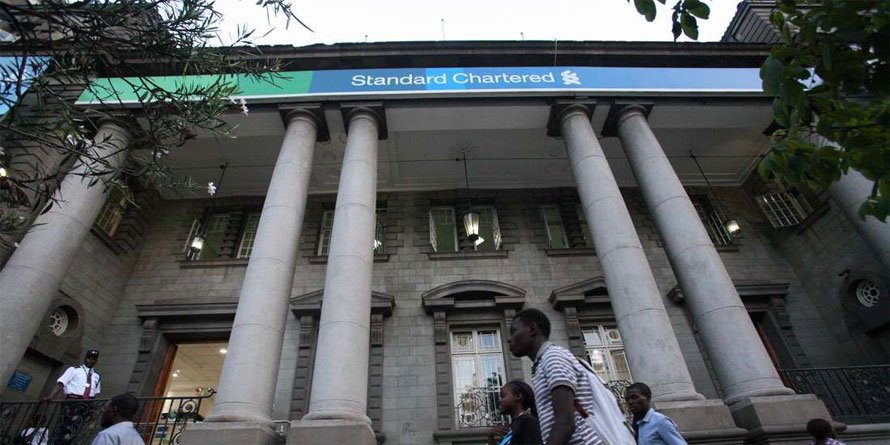Kenyatta Avenue Standard Chartered Branch in Nairobi. FILE PHOTO | NMG Staff costs at Standard Chartered Bank Kenya rose by Sh541 million in the year ended December, partly reflecting the impact of one-off costs relating to retrenchment 200 employees in the review period.
StanChart’s results for the period shows that its payroll costs increased to Sh7.6 billion compared to Sh7.1 billion a year earlier.
The lender implemented the layoffs between November and December as it continued to pursue its strategy of enhancing efficiencies through expansion of digital services while de-emphasising brick-and-mortar operations.
“Our significant investment into core digital capabilities in recent years has borne fruit during the pandemic, with up to three quarters of our staff working remotely,” StanChart’s chief executive Kariuki Ngari said in a statement.
“The investments we continue to make to enhance our digital capabilities have enabled us to continue serving our clients safely and seamlessly despite the disruption occasioned by the pandemic while at the same time positioned us to take advantage of emerging opportunities.”
Those retrenched were offered a one month’s salary in lieu of notice, severance pay at the rate of one-and-a-half months per year of service and pay for accrued leave days at the time of termination.
StanChart’s severance pay was triple the minimum legal requirement of 15 days basic salary for each completed year of service.
The higher staff costs, coupled with increased loan loss provision, contributed to a rise in total expenses which reduced profitability.
Total operating expenses jumped 21 percent to Sh20 billion, with net profit subsequently dropping 34 percent to Sh5.4 billion.
The lender also took a hit from lower interest and non-interest income which declined six percent and 10.1 percent to Sh23.7 billion and Sh8.2 billion respectively.
StanChart was the second bank to institute layoffs after NCBA Group announced it was also letting go of an unknown number of employees by December 2020 due to the impact of the Covid-19 pandemic on its business.The job cuts at NCBA –the product of the combination of the former NIC Group and CBA Group— come after the expiry of one year during which it was not allowed to fire employees following the merger.Keeping a lid on costs has become more urgent as bank earnings fall on the back of increased defaults and provisions for the same in the course of the Covid-19 pandemic.
